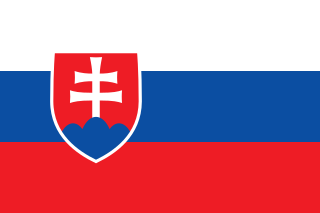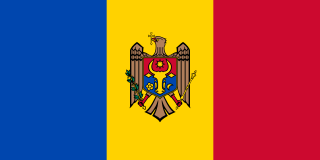
France competed at the 2004 Summer Olympics in Athens, Greece, from 13 to 29 August 2004. French athletes have competed in every Summer Olympic Games of the modern era. The French Olympic Committee sent a total of 308 athletes to the Games, 195 men and 113 women, to compete in 25 sports.

Kazakhstan competed at the 2004 Summer Olympics in Athens, Greece, from 13 to 29 August 2004. This was the nation's third appearance at the Summer Olympics in the post-Soviet era.

Italy competed at the 2004 Summer Olympics in Athens, Greece, from the 13th to the 29th of August 2004. The country has competed at every Summer Olympic games in the modern era, except for the 1904 Summer Olympics in St. Louis. The Italian National Olympic Committee sent the nation's largest ever delegation in history to the Games. A total of 364 athletes, 229 men and 135 women, competed in 27 sports.

Belarus competed at the 2004 Summer Olympics in Athens, Greece, from 13 to 29 August 2004. This was the nation's fifth appearance at the Summer Olympics in the post-Soviet era. The Belarus Olympic Committee sent a total of 151 athletes to the Games, 82 men and 69 women, to compete in 22 sports.

Spain competed at the 2004 Summer Olympics in Athens, Greece, from August 13 to 29, 2004. This nation has competed in every Summer Olympic Games since its official debut in 1920. Spain, however, boycotted two editions, the 1936 Summer Olympics in Nazi Germany, and the 1956 Summer Olympics in Melbourne, as a protest to the Soviet invasion of Hungary. The Spanish Olympic Committee sent the nation's third largest delegation in history to the Games. A total of 317 athletes, 177 men and 140 women, competed in 26 sports.

Bulgaria competed at the 2004 Summer Olympics in Athens, Greece, from 13 to 29 August 2004. This was the nation's seventeenth appearance at the Summer Olympics, except for three occasions, including the 1948 Summer Olympics in London due to the nation's role in World War II and 1984 Summer Olympics in Los Angeles because of the Soviet boycott. The Bulgarian Olympic Committee sent 95 athletes, 49 men and 46 women, to compete in 19 sports. Shooting champion and four-time Olympian Mariya Grozdeva became the nation's first ever female flag bearer in the opening ceremony.

Romania competed at the 2004 Summer Olympics in Athens, Greece, from 13 to 29 August 2004. Romanian athletes have competed at every Summer Olympic Games since its official debut in 1924, missing only two editions, including the 1948 Summer Olympics. The Romanian Olympic and Sports Committee sent the nation's smallest team to the Games since the 1988 Summer Olympics in Seoul. A total of 108 athletes, 50 men and 58 women, had competed in 16 different sports, most notably in artistic gymnastics and rowing. For the third time in Olympic history, Romania was again represented by more female than male athletes.

Czech Republic competed at the 2004 Summer Olympics in Athens, Greece, from 13 to 29 August 2004. This was the nation's third appearance at the Summer Olympics after gaining its independence from the former Czechoslovakia. The Czech Olympic Committee sent the nation's largest team to the Games since the post-Czechoslovak era. A total of 142 athletes, 80 men and 62 women, competed in 19 sports; the nation's team size was roughly denser from Sydney by one sixth of the athletes. Women's basketball was the only team-based sport in which the Czech Republic had its representation at these Olympic Games. There was only a single competitor in equestrian, artistic and trampoline gymnastics, judo, and weightlifting.

Norway competed at the 2004 Summer Olympics in Athens, Greece, from 13 to 29 August 2004. This was the nation's twenty-fourth appearance at the Summer Olympics, except for the 1904 Summer Olympics in St. Louis, and the 1980 Summer Olympics in Moscow, due to the country's support of the United States boycott. With the absence of women's football and handball teams, Norwegian Olympic and Paralympic Committee and Confederation of Sports sent the nation's smallest delegation to the Games since the 1968 Summer Olympics in Mexico City. A total of 53 athletes, 36 men and 17 women, competed only in 12 different sports. There was only a single competitor in badminton, swimming, taekwondo, weightlifting, and wrestling.

Hungary competed at the 2004 Summer Olympics in Athens, Greece, from 13 to 29 August 2004. Hungarian athletes have competed at every Summer Olympic Games in the modern era, except the 1920 Summer Olympics in Antwerp, and the 1984 Summer Olympics in Los Angeles because of the Soviet boycott. The Hungarian Olympic Committee sent a total of 209 athletes to the Games, 119 men and 90 women, to compete in 20 sports. Water polo and handball were the only team-based sports in which Hungary had its representation in these Olympic Games. There was only a single competitor in road cycling and mountain biking.

Latvia competed at the 2004 Summer Olympics in Athens, Greece, from 13 to 29 August 2004. This was the nation's eighth appearance at the Summer Olympics.

Slovakia competed at the 2004 Summer Olympics in Athens, Greece, from 13 to 29 August 2004. This was the nation's third consecutive appearance at the Summer Olympics since the post-Czechoslovak era. The Slovak Olympic Committee sent a total of 64 athletes to the Games, 48 men and 16 women, to compete in 11 sports. There was only a single competitor in artistic and trampoline gymnastics and sailing.

Austria competed at the 2004 Summer Olympics in Athens, Greece from 13 to 29 August 2004. 74 competitors, 54 men and 20 women, took part in 56 events in 18 sports.

Tunisia competed at the 2004 Summer Olympics in Athens, Greece, from 13 to 29 August 2004. This was the nation's eleventh appearance at the Olympics, except the 1980 Summer Olympics in Moscow because of its partial support to the United States boycott.

Lithuania competed at the 2004 Summer Olympics in Athens, Greece, from 13 to 29 August 2004. This was the nation's sixth appearance at the Summer Olympics. The National Olympic Committee of Lithuania sent the nation's smallest delegation to the Games since the 1992 Summer Olympics in Barcelona. A total of 59 athletes, 47 men and 12 women, competed in 13 sports, including the men's basketball team as the nation's team-based sport.

Uzbekistan competed at the 2004 Summer Olympics in Athens, Greece, from 13 to 29 August 2004. This was the nation's third consecutive appearance at the Olympics. The National Olympic Committee of the Republic of Uzbekistan sent a total of 70 athletes to the Games, 52 men and 18 women, to compete in 13 different sports, tying its delegation record with Sydney four years earlier. There was only a single competitor in road cycling, artistic and trampoline gymnastics, and table tennis.

Moldova competed at the 2004 Summer Olympics in Athens, from 13 to 29 August 2004. This was the nation's third consecutive appearance at the Summer Olympics in the post-Soviet era.

Lithuania competed at the 2012 Summer Olympics in London, from 27 July to 12 August 2012. This was the nation's eighth appearance at the Summer Olympics. The National Olympic Committee of Lithuania sent a total of 62 athletes to the Games, 39 men and 23 women, to compete in 14 sports. Men's basketball was the only team-based sport in which Lithuania had its representation in these Olympic games.

Estonia competed at the 2012 Summer Olympics in London, United Kingdom from 27 July to 12 August 2012. This was the nation's eleventh appearance at the Summer Olympics.

Cuba competed at the 2012 Summer Olympics in London, from 27 July to 12 August 2012. This was the nation's nineteenth appearance in the Olympics. With baseball's removal from the Olympic program and the absence of the nation's volleyball team for the first time, the Cuban Olympic Committee sent the nation's smallest delegation to the Games since 1964. A total of 111 athletes, 66 men and 45 women, competed in 13 sports. There was only a single competitor in archery and table tennis.



















